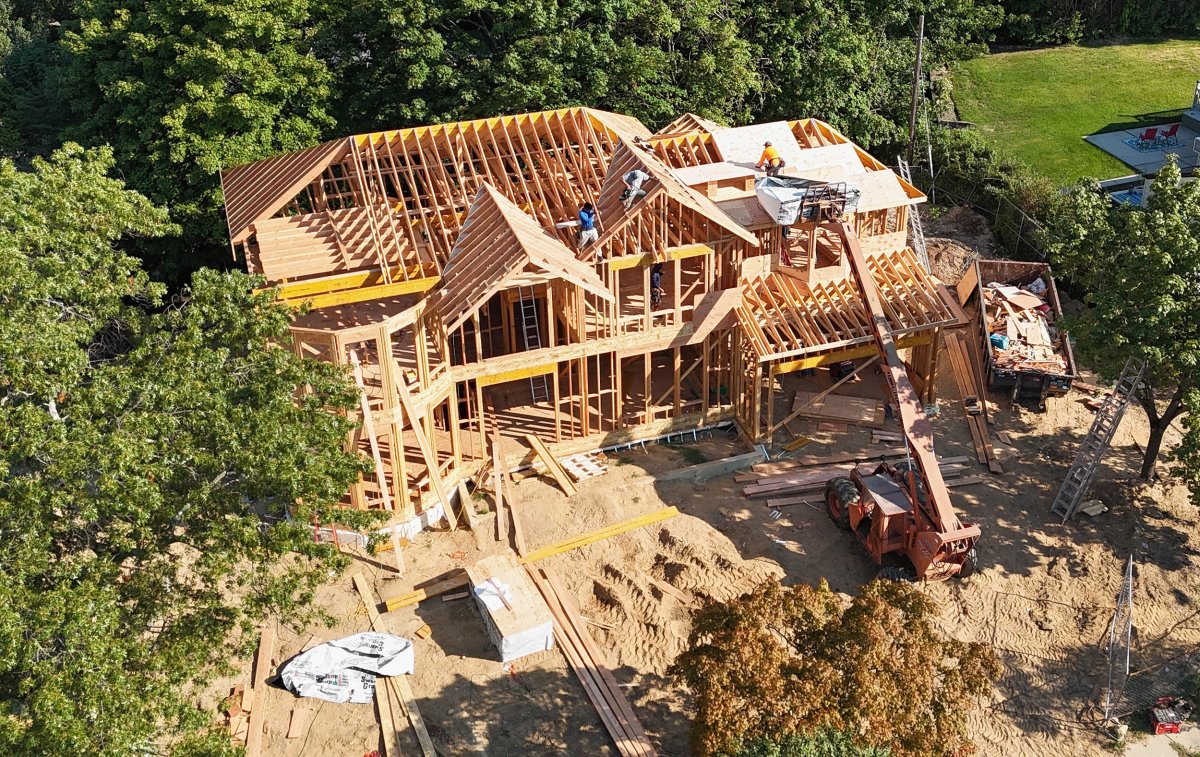Americans agree that something needs to be done to fix the housing crisis. The median sales price for homes in the United States has increased more than 30 percent just since the pandemic. Millions of people are now priced out of the market.
A central but overlooked feature of the housing crisis is that it is really a land crisis. Fixing the land problem—from land shortages to excessive land use regulations and high prices—in turn requires local policy reform.
The price of land has risen even more rapidly than housing, and now comprises about 40 percent of the share of property value. In a growing number of U.S. cities and metropolitan areas, land prices constitute more than half of property value, and in areas like San Jose and Los Angeles they make up around three-quarters of land value.

Other important economic and social factors have also contributed to the housing malaise, such as a construction backlog, high interest rates, and pandemic-era moves and remote work. These broad trends have fostered global housing disruptions. Many countries in the developed world—such as Australia, Canada, the Netherlands, and the United Kingdom—are experiencing a housing shortage and rapid rise in prices akin to the United States.
But differences in the severity of the housing crisis across developed economies illustrate the importance of the politics—and the prices—surrounding land. Take the United Kingdom, which faces spiraling prices and a deficit of 4.3 million homes that is worst in the most dynamic and desirable areas. The UK has discretionary case-by-case urban planning rather than rule-based planning, which means that both urban planners as well as city councils can reject building plans. That gives city councils a political role in choosing winning and losing developments, and it encourages residents to lobby to protect their particular interests. As a result, most houses are getting built in the areas where circumventing these dynamics is easiest, such as far urban peripheries. And land prices continue to rise.
The Netherlands is also home to an unaffordable housing market. Like in the UK, local zoning laws are holding back building. Lengthy zoning procedures and strict environmental laws, advocated by longtime urban residents who held property before it became unaffordable, throttle new construction. Land politics have also gone national. A set of governments reformed laws to enable investors to snap up houses at a large scale and to provide mortgage tax relief, which in turn encouraged multiple home ownership.
Japan has taken a different path. Property prices in Tokyo were the most expensive in the world 30 years ago. No more. Affordability has not come because of population decline. Although the country's population as a whole has leveled off, greater Tokyo's population increased by 4 million people over the last 30 years. Instead, urban zoning is simple. There are 12 zone types, each defined by a nuisance level they allow that ranges from residential to industrial. If the building type doesn't exceed the nuisance level, then anything can be built. That circumvents a lot of planning and permissions for individual sites and makes it far easier to increase housing density where there is the greatest demand.
The United States is more akin to the UK and the Netherlands in its land politics and policies than to Japan. Most locales, especially cities, have byzantine land regulations and zoning restrictions that make homebuilding slow and expensive. Some of these are rooted in politicized racial and demographic changes that existing property owners have tried to forestall through restrictive land use regulations that the Supreme Court allowed beginning in the 1920s. Strong property rights in real estate support the owners of property but they also serve to keep other people out. The problem with this inherently exclusionary aspect of ownership for the broader housing market arises when it encounters major population shifts, sympathetic local or national government, or both.
Cutting regulatory barriers to land use will take some of the politics out of land use. To encourage these reforms, state governments and the federal government should provide funding and incentives to cities and townships to undertake structural zoning reforms. That could in turn free up more land for building while reducing prices and stabilizing the housing market.
Michael Albertus is a professor of political science at the University of Chicago and an internationally renowned expert on land issues. He is the author of the book, Land Power: Who Has It, Who Doesn't, and How That Determines the Fate of Societies. You can follow him on Twitter/X @mikealbertus
The views expressed in this article are the writer's own.


.png)

















 English (US) ·
English (US) ·